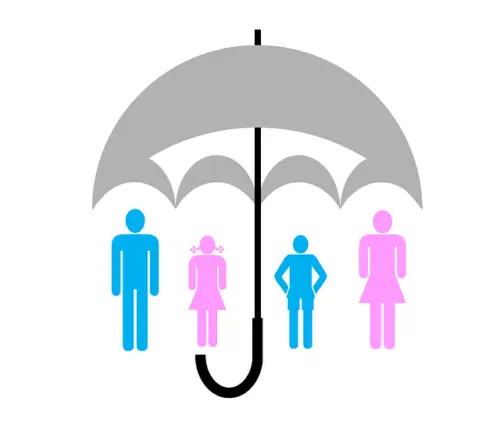
Nigeria is in a time where quality health care is increasingly becoming expensive. People who are rich enough to pay out of pocket are able to afford whatever level of care they need, meanwhile, the poorer masses who are unable to afford the increasing cost of healthcare continue to suffer.
Health maintenance organizations (HMOs) have proven to be a cost-effective solution to the increasing cost of healthcare in Nigeria.
The advent of HMO in Nigeria was in early 1996 and then, they mainly served employees in the private sector. But in recent times, it has grown to offer health insurance to clients in the public sector and even individuals.
Going forward, we will be addressing the question; how does HMO work in Nigeria?
What is an HMO?

An HMO is an organization that provides health insurance coverage for a monthly or annual fee.
To break it down; clients who register under an HMO contribute a certain amount called a premium every month or every year which they pay the HMO, and the HMO will in return take care of their hospital visits for medical reasons which is within a particular plan.
This means that the HMO will only cover for limited reasons for medical visits for all the insured. However, if the client needs to see the doctor for some other reason that is not covered within the HMO package/plan, the client will be expected to pay out of pocket.
These small contributions made monthly or yearly allow for premiums to be lower.
The Structure of HMO in Nigeria

An HMO is made up of a group of medical insurance providers that limit coverage to medical care provided through doctors and other health workers who are in agreement with the HMO.
HMO plans require that participants initially receive medical care services from an assigned provider known as the Primary Care Physician (PCP) or Primary Care Doctor.
These primary care doctors are usually not specialists, but they are general practitioners and serve as the first point of contact for clients.
It is within the discretion of the Primary Care Physician to refer complicated cases to specialists for a more directed intervention.
With an HMO plan, you must first see your PCP, who will then refer you to a specialist within the HMO network.
For you to keep receiving health coverage, you must note that you must stay within your network of providers.
HMO in Nigeria: Pros and Cons

Health Maintenance Organizations (HMOs) play a crucial role in the healthcare system of Nigeria, offering several benefits to both individuals and the overall healthcare infrastructure.
Benefits of Health Maintenance Organizations in Nigeria
Affordability:
HMOs often provide cost-effective healthcare services through prepaid plans. This makes healthcare more accessible to a broader segment of the population, including those with limited financial resources.
Preventive Care:
HMOs in Nigeria typically emphasize preventive care and wellness programs. This focus on early detection and prevention helps in reducing the overall healthcare burden by addressing health issues before they become severe.
Comprehensive Coverage:
HMOs in Nigeria typically offer a comprehensive range of healthcare services, covering various medical specialties, laboratory tests, and prescription drugs.
Members can access a wide array of healthcare services without having to worry about additional out-of-pocket expenses for covered services.
Network of Healthcare Providers:
HMOs establish networks of healthcare providers, ensuring that members have access to a qualified and accredited group of doctors, hospitals, and other medical professionals.
This network approach helps maintain quality standards and ensures that members receive care from reputable healthcare providers.
Streamlined Administrative Processes:
HMOs often streamline administrative processes, making it easier for both healthcare providers and members to navigate the healthcare system.
Electronic record-keeping and efficient claims processing contribute to a more organized and user-friendly healthcare experience.
Disadvantages of HMOs in Nigeria
Health Maintenance Organizations (HMOs) in Nigeria, like in any other country, have both advantages and disadvantages.
Here are some cons or drawbacks associated with HMOs in Nigeria:
Limited Provider Network:
HMOs often have a restricted network of healthcare providers. This limitation can be a disadvantage, especially if individuals have established relationships with specific doctors or hospitals that are not included in the HMO’s network.
Service Delays and Limited Access:
Some individuals may experience delays in receiving medical services due to the bureaucracy and administrative processes within HMOs.
The need for pre-authorization and approval for certain treatments can lead to delays in accessing necessary healthcare services.
Bureaucratic Processes:
The administrative processes involved in obtaining approvals for medical procedures and services can be time-consuming and cumbersome. This bureaucratic nature of HMOs can be frustrating for both healthcare providers and patients.
Quality of Care Concerns:
There may be concerns about the quality of healthcare provided by HMOs. Some critics argue that cost-cutting measures employed by HMOs to keep premiums low can potentially compromise the quality of medical care provided to individuals.
Limited Coverage for Specialized Treatments:
HMOs may not always cover specialized treatments or procedures, and individuals requiring such services may find themselves having to pay out-of-pocket or seek alternative insurance arrangements.
Lack of Personalized Care:
The structure of HMOs tends to emphasize cost control and efficiency, sometimes at the expense of personalized and patient-centric care. Some individuals prefer a more personalized approach to healthcare, which may be limited in an HMO setting.
Inflexibility in Choosing Specialists:
Patients may face challenges in choosing specialists or getting referrals to specific healthcare providers outside the HMO’s network. This lack of flexibility can be a significant drawback for those who have specific healthcare preferences.
Premiums and Co-Payments:
While HMOs aim to provide cost-effective healthcare, individuals are still required to pay premiums and co-payments. In some cases, individuals may find these costs to be relatively high, considering the perceived limitations in choice and coverage.
Risk of HMO Insolvency:
There is a risk that an HMO may face financial challenges or insolvency, potentially leaving individuals without coverage. This risk underscores the importance of choosing HMOs with a solid financial standing and reputation.
It’s important to note that the effectiveness and drawbacks of HMOs can vary, and individual experiences may differ based on factors such as the specific HMO, the healthcare needs of individuals, and regional variations in healthcare infrastructure and services.
But overall, the benefits of being under an HMO significantly outweigh the setbacks, especially with the unpredictable rise in the cost of services in Nigeria.
List of Available HMOs in Nigeria
The list below contains some of the available HMOs in Nigeria.
“Kindly note that this blog post is only informational and is not promoting or recommending any particular HMO in Nigeria over others. You have the responsibility of doing your own personal research and finding the best HMOs in Nigeria, their risks and benefits”.
The list of available HMOs in Nigeria includes:
- Hygeia HMO
- Reliance HMO
- Redcare HMO
- Mansard HMO
- Roding HMO
- Greenbay HMO
- Anchor HMO
- Lifeworth HMO
- Swift HMO
- AIICO HMO
- Liberty Blue /Total Health Trust HMO (THT)
- Sterling HMO
- Premier Medicaid HMO
- Marina Health HMO
- Metro Health HMO
- Novo HMO
- Royal Exchange HMO
- Mediplan HMO
- Avon HMO
- Healthcare International HMO
- Oceanic HMO
- Songhai Health Trust HMO
- Venus Medicare HMO
- Pro health HMO
- Clearline International HMO
- Military HMO
- Integrated Healthcare HMO
- Thebe HMO
The list continues as many HMOs sprout daily in Nigeria, all in the bid to make healthcare affordable and of course to make a profit as a business.
Also, find Available Blood Banks in Nigeria Near You
Final Advice
With the current situation in Nigeria, many people are just one step away from abject poverty when you or a close relative are in a medical emergency. This is where having health insurance provided by an HMO or trust is necessary.
Your HMO will help relieve the financial burden on you and your family in such situations with the increasing cost of healthcare.
Paying for health services out of your pocket is very expensive, so find yourself a reliable HMO in Nigeria and become health insured!
Discover more from reviewer4you.com
Subscribe to get the latest posts to your email.





